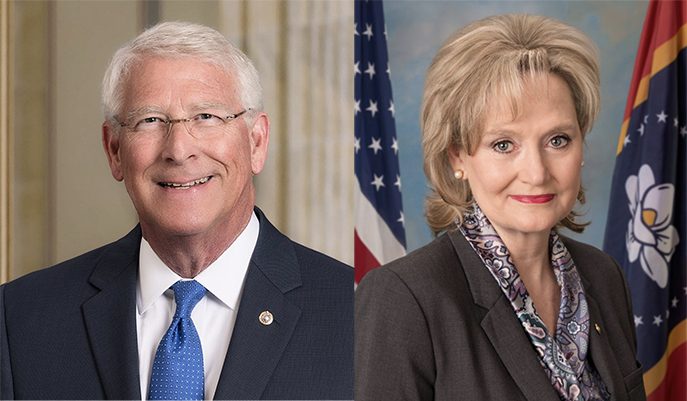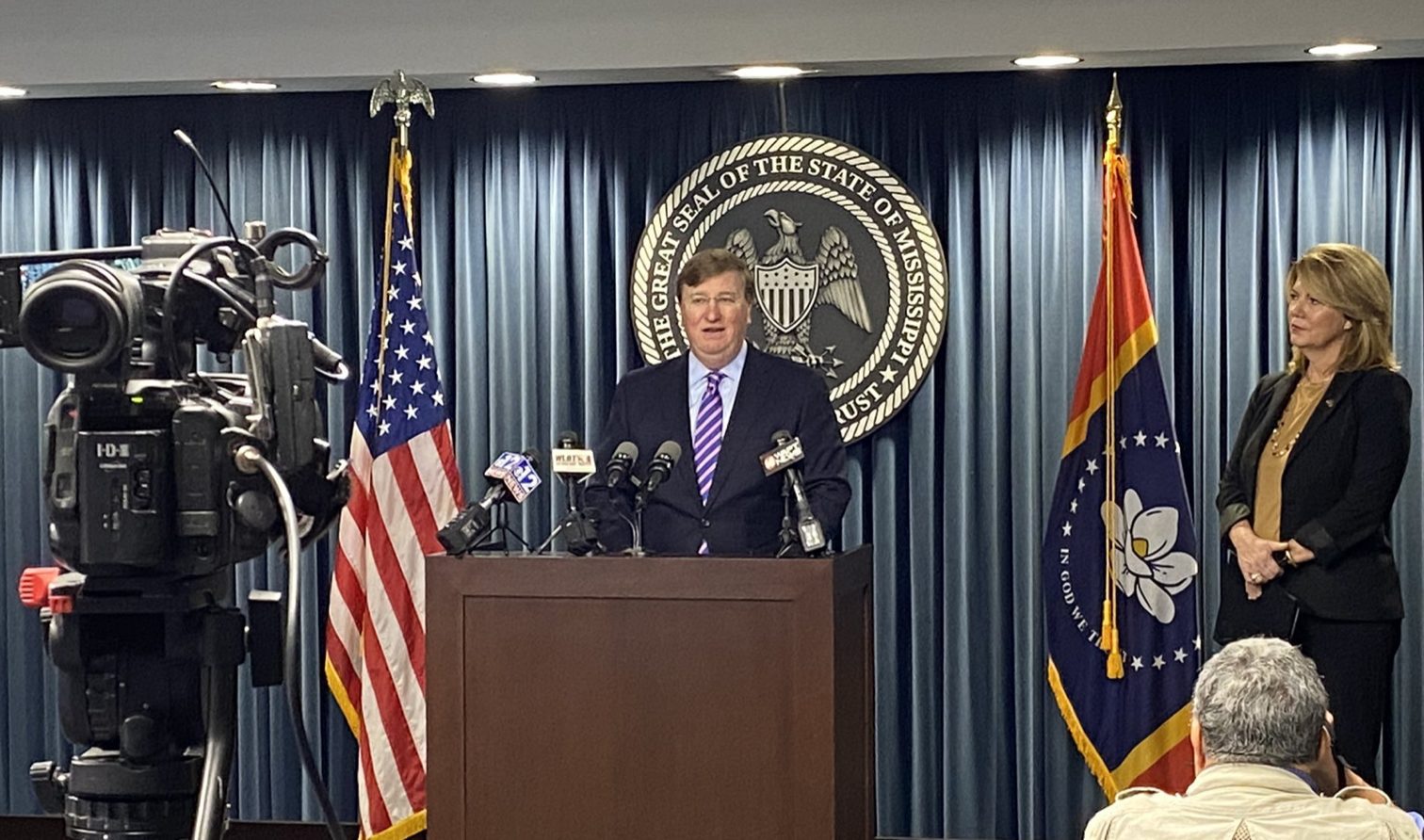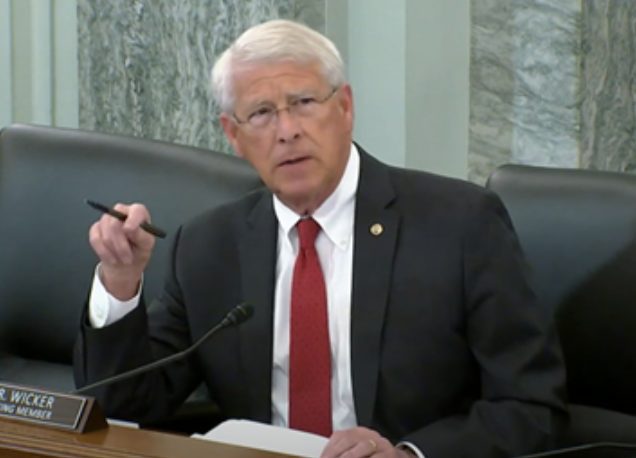
U.S. Senators Roger Wicker and Cindy Hyde-Smith of Mississippi
Agreement would end COVID-19 vaccine mandate for Armed Forces members, put forth a 4.6% pay raise for DoD employees, and more.
Mississippi U.S. Senators Roger Wicker (R-MS) and Cindy Hyde-Smith (R-MS) praised the agreement on the Fiscal Year 2023 National Defense Authorization Act (FDAA) after the U.S. House of Representatives voted to advance the package to the Senate.
Click here to view a full summary of the Fiscal Year 2023 NDAA.
The bipartisan, bicameral compromise allowed language into the NDAA that would:
- Boost support for the Pacific Deterrence Initiative, a defense program integral to deterring Chinese aggression;
- Support modernizing the nuclear triad and retain the sea-launched nuclear cruise missile (SLCM-N) program;
- Improve defense industrial base supply chain security and acquisition efforts;
- Deepen ties with allies by increasing security relationships with Taiwan and Baltic countries, and adding expansive oversight and reporting requirements to the Ukraine Security Assistance Initiative;
- Keep the DOD focused on warfighting by excluding multiple liberal provisions, including one that would have required extremism training for every departing service member.
The 62nd annual NDAA supports a total of $857.9 billion in fiscal year 2023 funding for national defense. Within this topline, the legislation authorizes $816.7 billion for the Department of Defense (DoD) and $30.3 billion for national security programs within the Department of Energy (DOE).
The NDAA increases the topline authorization level by $45 billion above the President’s budget request to address the effects of inflation and accelerate implementation of the National Defense Strategy. Within this topline, the bill authorizes $12.6 billion for inflation impacts on purchases, $3.8 billion for inflation impacts on military construction projects, and $2.5 billion for inflation impacts on fuel purchases.
Senator Wicker said this vote is a huge step forward for American security.
“With an additional $45 billion included for national defense over President Biden’s woefully inadequate defense proposal, this year’s NDAA sends a strong message to our adversaries and ensures that our service members have the tools they need to keep us safe,” Wicker said. “I congratulate Senators Jim Inhofe and Jack Reed for their hard work to advance this legislation, and I look forward to helping them get it across the finish line before the end of this Congress.”
Wicker said he especially appreciates Senator Inhofe for holding the line on many of this year’s toughest fights.
“Under his leadership, conservatives prevailed against efforts to force women to register for the draft and secured a provision that will eliminate the Biden Administration’s disastrous COVID vaccine mandate,” Wicker said. “As China and Russia race forward with their own military buildups, our only response can be to show we are serious about our own defense programs. I will continue fighting to ensure our force is laser-focused on protecting our freedoms above all else.”
Among the provisions in the FY 2023 NDAA, the agreement requires the Secretary of Defense to rescind the mandate that members of the Armed Forces be vaccinated against COVID-19, puts forth a 4.6% pay raise for Department of Defense employees, and secures a major boost for Navy shipbuilding programming.
Senator Hyde-Smith told Y’all Politics that the rollback of the vaccine mandate is another plus to this defense policy bill.
“We must always work to support our men and women in uniform and strengthen our Armed Forces,” Hyde-Smith said. “The vaccine mandate distracts from that goal. I’m honored to be part of the effort to ensure our servicemen are protected from this federal overreach and look forward to the appropriations measure that will fund the policies outlined in the NDAA.”
Earlier this month, Senator Hyde-Smith joined colleagues to inform leadership that they would oppose moving forward with the FY2023 NDAA, unless the Senate votes on an amendment to:
- Prohibit the involuntary separation of a member of the Armed Forces based solely on a service member’s COVID-19 vaccination status.
- Reinstate those who may have already been separated with back pay.











